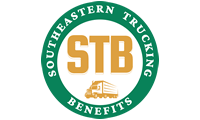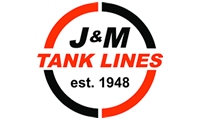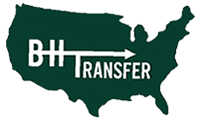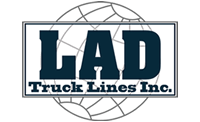Winter Weather Resources
As is the case in all winter weather events motor carriers and drivers should be prepared for bad weather and avoid the inner perimeter of Atlanta if inside travel is not necessary.
Geogia's Declaration of Emergency
Click here for a copy of the Emergency Declaration issued by Gov. Kemp.
Click here for the 24-hour extension of the Emergency Declaration signed by Gov. Kemp on 12/26
FMCSA's Regional Emergency Declaration
Click here for the Regional Declaration from FMCSA
The Federal Motor Carrier Safety Administration (FMCSA) has issued an Regional Emergency Declaration for the difficulty in obtaining the necessary heating fuel, including propane, natural gas, and heating oil. This emergency is in response to the severe winter storms and high demand of heating fuels, including propane, natural gas, and heating oil. The declaration includes 44 states & District of Columbia. The declaration is valid for 15 days, expiring on January 6th, 2023. FMCSA will continue to monitor the storm for any modifications necessary.
The declaration does provide regulatory relief for those motor carriers who are transporting heating fuels, including propane, natural gas, and heating oil. Feel free to share the link and it is posted on the FMCSA website. Please reach out (phone: 1-877-831-2250) for any questions you may have.
Emergency Declarations, Waivers, Exemptions and Permits
Georgia Information
The Renewal of State of Emergency for Supply Chain Disruptions is still in effect for, GA. View the declaration here.
Oversize permits may be issued by the Georgia Department of Public Safety, Motor Carrier Compliance Division, during normal business hours, Monday through Friday by calling 404-624-7700 or through the Georgia Permitting and Routing Optimization System online portal at https://gapros.dot.ga.gov/.
Tire Chain Requirements
For a printable document to share with your drivers on tire Chain requirements, click here.
OCGA § 32-6-5 allows the Georgia Department of Transportation (GDOT) to close or limit access to any portion of road during a “Declared State of Emergency” for inclement weather conditions. When such conditions exist, GDOT shall erect or post signage of adequate size indicating that a portion of the state highway system has been closed or access has been limited.
Once access to a roadway has been limited due to inclement winter weather conditions, notice shall be given to motorists through posted signage that motor vehicles must be equipped with tire chains, four-wheel drive with adequate tires for existing conditions or snow tires with a manufacturer's all-weather rating in order to proceed on such section of the roadway.
Operators of commercial vehicles (other than buses) with four or more drive wheels traveling on a road declared as limited access due to inclement winter weather conditions shall affix tire chains to at least four of the drive wheel tires. Bus operators shall affix tire chains to at least two of the drive wheel tires before proceeding on a road with limited access due to inclement winter weather conditions.
Tire chains are defined by OCGA § 32-6-5 as metal chains which consist of two circular metal loops, positioned on each side of a tire, connected by not less than nine evenly spaced chains across the tire tread or any other traction devices capable of providing traction equal to or exceeding that of such metal chains under similar conditions.
A driver of a motor vehicle who causes an accident or blocks the flow of traffic while failing to comply with the requirements of subsection (a) of OCGA § 32-6-5, when access is limited on the state highway system due to a declared state of emergency for inclement weather conditions, shall be fined up to $1,000.00.
Commercial Vehicle Operation During Hazardous Conditions
For a printable document to share with your drivers, click here.
Title 49, CFR, § 392.14
Federal and State Law require that extreme caution in the operation of a commercial motor vehicles shall be exercised when hazardous conditions, such as those caused by snow, ice, sleet, fog, mist, rain, dust, or smoke, adversely affect visibility or traction.
Additionally, speed shall be reduced when such conditions exist. And, if conditions become sufficiently dangerous, the operation of the commercial motor vehicle shall be discontinued and shall not be resumed until the commercial motor vehicle can be safely operated. Whenever compliance with the foregoing provisions of this rule increases hazard to passengers, the commercial motor vehicle may be operated to the nearest point at which the safety of passengers is assured.
Regulatory Guidance from the Federal Motor Carrier Safety Administration (FMCSA)
Question: Who makes the determination, the driver or carrier, that conditions are sufficiently dangerous to warrant discontinuing the operation of a Commercial Motor Vehicle (CMV)?
Guidance: Under this section, the driver is clearly responsible for the safe operation of the vehicle and the decision to cease operation because of hazardous conditions.
Additional Resources
Take Note
It is highly recommended to maintain a copy of the declaration that the carrier is operating under in the vehicle and a bill of lading to help support their response. This will assist carriers/drivers with any questions or issues in the various states they may be traversing to respond to this emergency.
GMTA 2024 Annual Sponsors!

Diamond Level

Gold Level

Silver Level















